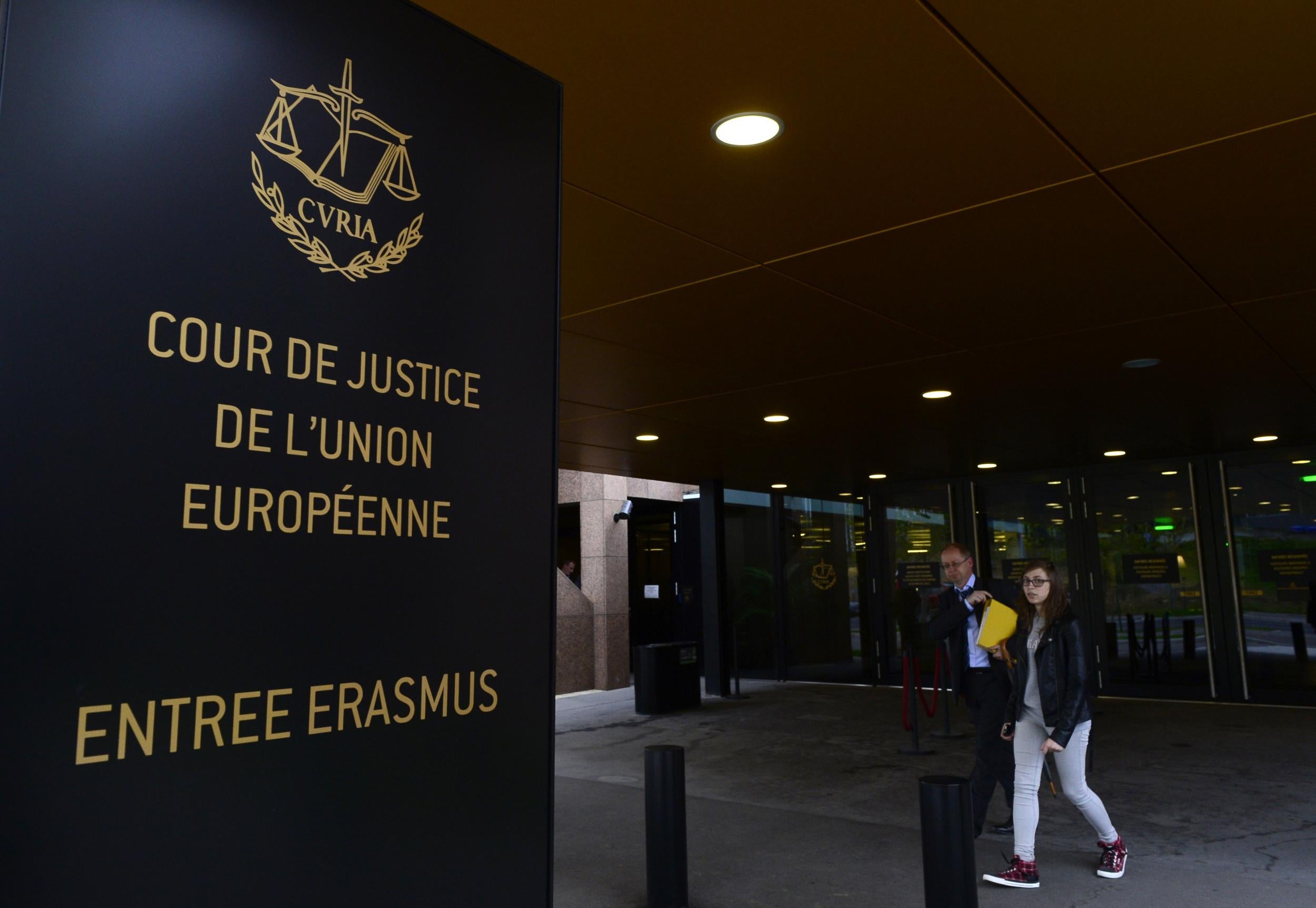European court decisions could still have direct force in UK after Brexit, offical documents reveal
New paper on future relations does not rule out key role for European Court during period of transition out of the EU

Your support helps us to tell the story
From reproductive rights to climate change to Big Tech, The Independent is on the ground when the story is developing. Whether it's investigating the financials of Elon Musk's pro-Trump PAC or producing our latest documentary, 'The A Word', which shines a light on the American women fighting for reproductive rights, we know how important it is to parse out the facts from the messaging.
At such a critical moment in US history, we need reporters on the ground. Your donation allows us to keep sending journalists to speak to both sides of the story.
The Independent is trusted by Americans across the entire political spectrum. And unlike many other quality news outlets, we choose not to lock Americans out of our reporting and analysis with paywalls. We believe quality journalism should be available to everyone, paid for by those who can afford it.
Your support makes all the difference.Ministers have not ruled out allowing European Court of Justice rulings to have direct force in Britain as it leaves the EU.
A newly published document setting out the UK’s approach to the ECJ says instead that Britain is willing to “work with the EU” to decide what happens during its transition out of the bloc.
Even after the likely three-year interim period, the paper indicates the UK will consider arrangements that may see the ECJ continue to have a far stronger role than many Brexiteers envisaged. It comes after Theresa May was accused of a “climbdown” from her previous unambiguous pledge to end the jurisdiction of the court in the UK.
The Independent understands that officials already accept that in some civil cases British litigants could potentially find decisions in their cases being taken by the ECJ after Brexit.
The Enforcement and Dispute Resolution document released on Wednesday sets out some potential options that the UK could discuss in negotiations over how to deal with the ECJ’s influence during and after Brexit.
The paper says that the court’s direct effect under existing legislation will end when the UK repeals the European Communities Act on Brexit day.
But Government insiders have not ruled out the possibility that negotiations may see the ECJ’s rulings still having direct impact in the UK for the transition period, in which the country moves to a new relationship with the bloc.
The paper says: “The UK will work with the EU on the design of the interim period, including the arrangements for judicial supervision.”
It then goes on to explore potential options for what will happen after the interim period, including looking at a precedent set in the EU Moldova Association Agreement.
The deal struck with the Eastern European state saw an “arbitration panel” with both Moldovan and EU figures on, set up to resolve disputes.But even then the panel is required to defer to the ECJ on matters of EU law and is “bound by its interpretation”.
In January, Ms May pledged in her Lancaster House speech to “take back control of our laws and bring an end to the jurisdiction of the [ECJ] in Britain.”
She added: “Leaving the European Union will mean that our laws will be made in Westminster... and those laws will be interpreted by judges not in Luxembourg but in courts across this country.”
But politicians in both Europe and the UK, including some Tories, consistently questioned the viability of the pledge when EU law is so intertwined with the UK’s.
Ms May’s ministers had told The Independent weeks before her Lancaster House speech that they feared it would be impossible to avoid European judges still taking decision in British cases after Brexit.
But the paper is clear that on cases relating to the rights of EU citizens in Britain after Brexit, the UK courts should be the final arbiter, contradicting Brussels’ current position.
A Commission spokesperson said: “I will not comment now on positions of one or the other party.”
A new round of Brexit talks are set to begin next week, with EU leaders indicating that the UK’s goal of moving past discussions on withdrawal – including the ‘divorce bill’ – and on to a new trade deal is unlikely to happen by October.
Subscribe to Independent Premium to bookmark this article
Want to bookmark your favourite articles and stories to read or reference later? Start your Independent Premium subscription today.
Join our commenting forum
Join thought-provoking conversations, follow other Independent readers and see their replies
Comments